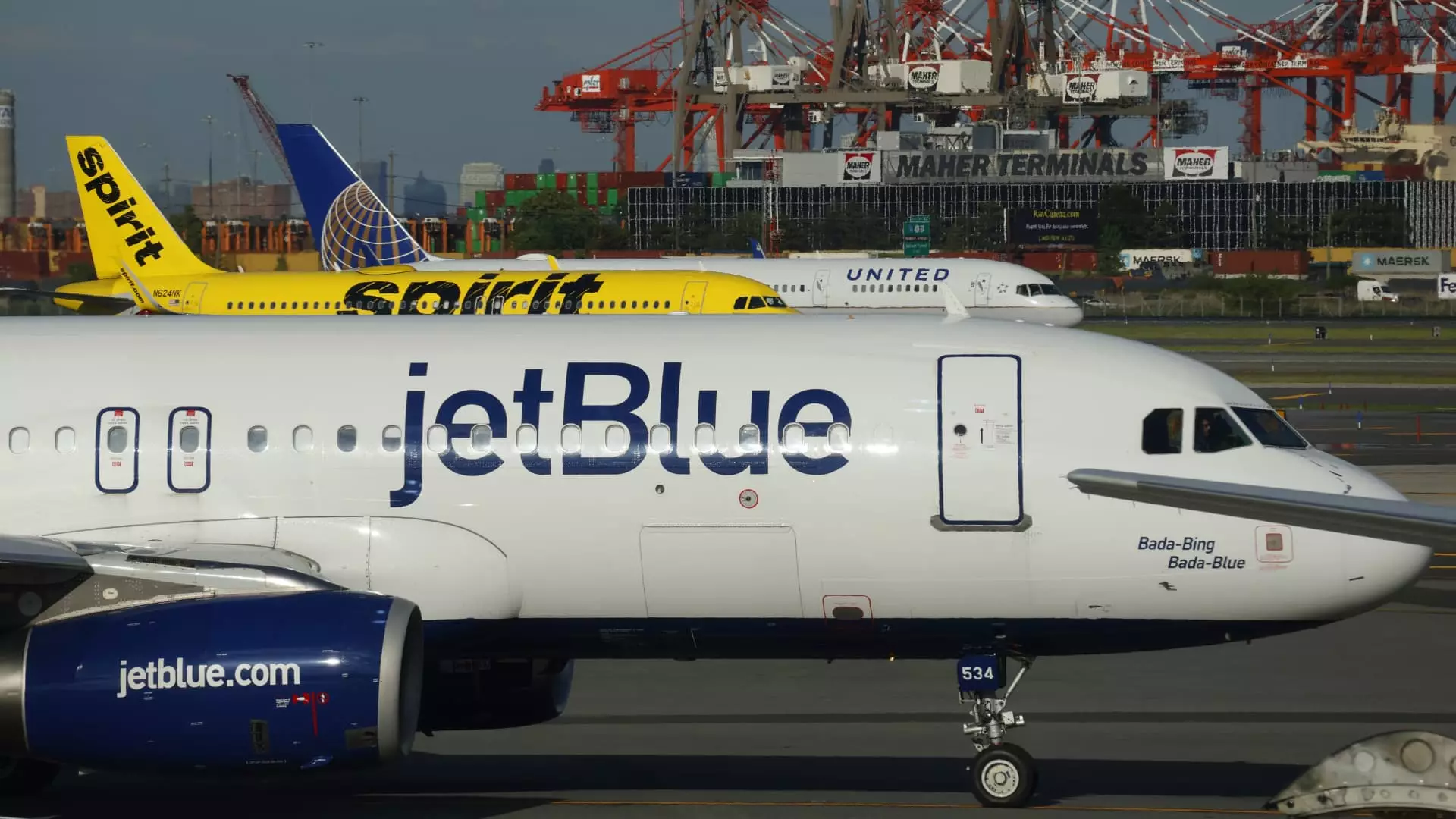Airlines across the globe that have historically been eager to expand their fleets are now facing financial constraints that are causing them to rethink their growth strategies. With low-cost carriers and deep discounters struggling to return to profitability, many airlines are postponing the purchase of new aircraft in an effort to conserve cash. This shift in mindset comes as a response to the impact of engine repairs, reduced demand due to the COVID-19 pandemic, and intense competition in the airline industry. As a result, airlines like Spirit Airlines, JetBlue Airways, and Frontier Airlines, which have traditionally been focused on growth, are now dialing back their expansion plans and deferring deliveries of new planes.
The decrease in airfare prices caused by oversupply of flights in the market has led to a decline in revenue for many airlines. According to Fare-tracker Hopper, the average cost of roundtrip domestic flights in the U.S. has decreased by 8% compared to last year, making it less profitable for airlines to operate flights. This, coupled with rising costs and the need to address engine issues, has forced airlines to reevaluate their fleet acquisition plans.
In response to these challenges, several airlines have announced plans to defer the delivery of new aircraft. Frontier Airlines, for example, has deferred 54 Airbus aircraft until at least 2029, citing concerns about the accumulation of delayed orders. Similarly, JetBlue Airways is estimated to save $3 billion by deferring 44 Airbus A321 airplanes through 2029 and extending existing aircraft leases. These deferrals are aimed at reducing costs and improving financial stability for the airlines.
While deferring aircraft deliveries may help airlines cut costs in the short term, it also poses challenges in terms of fleet availability and growth opportunities. JetBlue CEO Joanna Geraghty highlighted the dilemma faced by airlines, stating that while they need planes to grow, taking delivery of aircraft that end up grounded due to engine issues is financially unsustainable. Moreover, the growing debt levels of airlines like JetBlue and Spirit Airlines make it difficult for them to afford new aircraft purchases amidst declining revenues.
Response from Aircraft Leasing Firms and Manufacturers
To address the changing landscape of aircraft purchases, leasing firms like AerCap have stepped in to assume aircraft orders from airlines like Spirit Airlines. This type of transaction not only provides financial relief to struggling airlines but also helps leasing companies like AerCap expand their portfolio of aircraft. Meanwhile, aircraft manufacturers like Airbus and Boeing are facing challenges in meeting demand for new planes, with skilled worker shortages and supply chain disruptions affecting their production capacity. Despite the deferrals from budget airlines, both Airbus and Boeing maintain a strong order book for their respective aircraft models, indicating continued demand for new planes in the market.
The current financial challenges faced by airlines have forced them to rethink their fleet acquisition strategies and focus on cost-saving measures. By deferring aircraft deliveries and exploring alternative financing options, airlines are aiming to weather the storm and return to profitability in the long run. While the path ahead may be challenging, the industry remains resilient and adaptive in response to changing market dynamics.

